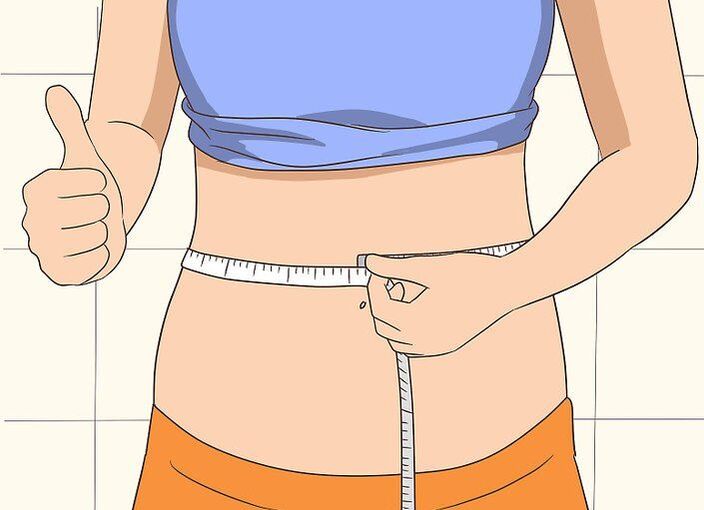|
From Annals of Internal Medicine, American College of Physicians What is the problem?
Obesity is an important and prominent risk factor for diabetes, which is a disease that increases the risk for cardiovascular disease. While researchers know that exercise is important to help reduce waist circumference and improve cardiovascular health, the effects of high-intensity exercise are still not solidified. The researchers conducted this particular study in order to determine whether it makes a significant difference if an exercise regimen involving the same total amount of exercise is completed at a lower or higher intensity. How was the study completed? The researchers gather 300 adults with abdominal obesity, who did not currently have diabetes. They were then randomly assigned to complete five exercise sessions each week that involved either a lower or higher total amount of low- or high-intensity exercise. A trainer supervised each session in order to monitor the amount and intensity of exercise. Throughout the study, researchers measured: waist size, weight, cardiovascular fitness and the body’s response to blood sugar. What did the researchers find? Compared to the control group, which was asked not to engage in any structured exercise, each exercise group reduced wait circumference and greater reduction in body weight. According to the study, performing the same amount of exercise at a higher intensity did not result in a significantly greater reduction in waist size or more weight loss. However, the participants in the high-intensity exercise group did have a greater increase in cardiovascular fitness and there was an improvement in how well the body controls blood sugar. The research conducted suggests that waist size may be reduced by both low and high intensity exercise as long as the same amount of exercise is performed (i.e. walking the same distance in either 60 or 40 minutes). While this research is enlightening, it is still unknown what the long-term health benefits are of the improved blood sugar control seen in people without diabetes. In the spirit of New Year’s resolutions, PC Magazine wrote a great article detailing the truth about losing weight in the digital age through fitness trackers and apps. While fitness trackers may be the latest fad, you’ll still need a few more things to successfully lose weight including: a plan, a toolkit and a great support system to keep you motivated. Part of the weight loss problem is that too many people wearing activity trackers stop using their new gadgets within just six months. So, how do we suggest staying on track?
 If you are planning to spend your weekend on the couch, you may want to reconsider. A recent report published in the Journal of the American Heart Association suggests that watching too much TV may be linked to a higher risk of early death. “Watching television is a passive, sedentary activity, and certainly people who do it for hours are not paying attention in terms of their lifestyle and in terms of their diet,” said American Heart Association cardiologist Nisa Goldberg. In a recent article published by USA Today, reports claim that being outdoors can improve health in more way than one. Richard Louv, an advocate of being outdoors states, “Pediatricians are telling me they are not seeing many broken bones in kids anymore. What they are seeing are repetitive stress injuries from using computers and mice.” Additionally, Louv says obesity can be a side effect of an indoor life.
To help parents and children better connect with an active, outdoor lifestyle, USA Today wrote up a ‘prescription’ to try this summer. Here are three of our favorite suggestions for a healthier summer: Try exercising outside more. Studies actually prove that those who exercise outdoors are more likely to stick with it than those who workout inside. And exercise outdoors doesn’t have to be limited to running or doing push-ups. Louv suggests building a tree house or going on a hike. Other activities could include riding bikes, jumping on a trampoline or swimming. Spend time in the sun (with sunscreen). Sun exposure for at least 10-15 minutes a day stimulates your body to make its own vitamin D and improves bone health. Additionally, the National Sleep Foundation claims exposure to morning sunlight can help you sleep better at night. Take a walk. If you are feeling stressed, try taking a walk outside. Victoria Maizes, executive director of the Arizona Center for Integrative Medicine at the University of Arizona-Tucson states, “Being outside seems to tap into the relaxation side of our nervous system and does it in as little as five minutes.”  A recent article published by Reuters suggests that the recommended exercise guidelines for adults are far too low and adults who follow the guidelines still gain weight. “Current recommendations of 150 minutes of moderate-intensity exercise or 60 minutes of vigorous exercise per week might not be sufficient to prevent long-term weight gain,” lead researcher Trine Moholdt told Reuters Health in an email. “More is needed.” Moholdt and her team recently published the results of a 22-year study examining weight and exercise patterns of more than 19,000 adults. The study shows that, on average, the men gained roughly 17 pounds while the women gained approximately 19 pounds. “Only those who exceeded the recommended weekly 150 minutes of moderate-intensity exercise or 60 minutes of vigorous activity were able to avoid significant weight gain over both the first and second half of the study period” (Reuters). So what does this mean? Consider taking your exercise to the next level by participating in at least two intense exercise regimes a week. Try joining a Zumba class or dusting your bike off for some long distance riding. Whatever exercise you decide on, find something that is going to make you sweat and add it to your schedule a few times a week! Read more about this study in the British Journal of Sports Medicine. If you have been keeping up the news, Fort Collins is starting 2014 with a bang. Not only did USA Today Travel rank our city as the #2 Best U.S. Cycling Town, but Time recently reported “94.9% of Fort Collins residents say they are satisfied with the city — a higher percentage than found in any other American city.” While many factors play into why residents love this town, we know great health is one of the top reasons. With the numerous bike trails and outdoor activities, Fort Collins residents are not only happy, but also healthy.
According to USA Today, the Alliance for Biking and Walking recently found “levels of obesity, high blood pressure and diabetes are lower in cities where a higher percentage of commuters bicycle or walk to work…” Jeffrey Miller, president and CEO of the Alliance for Biking and Walking, commented, “It’s not surprising to see that we have a correlation between public health and levels of biking and walking. Still, it’s good to have the data. It’s a very positive thing that we need to highlight.” So dust off your bikes and get to riding! With our 310-mile network of paths and bike lanes, Fort Collins is the perfect city to commute to work or enjoy a weekend ride.  According to the NPR Health Blog, research presented at the European Breast Cancer Conference suggests, “exercise reduces women’s risk of breast cancer [regardless of] what kind of exercise they do, how old they are, how much they weigh, or when they get started.” Data from numerous studies conducted between 1987 and 2013 involving more than 4 million women led researchers to agree “the more active a woman is, the better her odds of avoiding breast cancer.” Additionally, the most active women in the studies reduced the risk by 12 percent (HealthDay). What does this mean? Stay active! If even the smallest amount of exercise can help reduce breast cancer risk, consider adding an evening walk to your daily routine or trying a new fitness class in town. And if you are already an active woman, keep up to good work-you are benefiting your health! |
MMSMedical Metabolic Specialists, located in Fort Collins, Colorado, is dedicated to using the latest scientific techniques to create a comprehensive, individualized. lifelong weight management program to improve your overall health. Archives
October 2023
Categories
All
|








 RSS Feed
RSS Feed